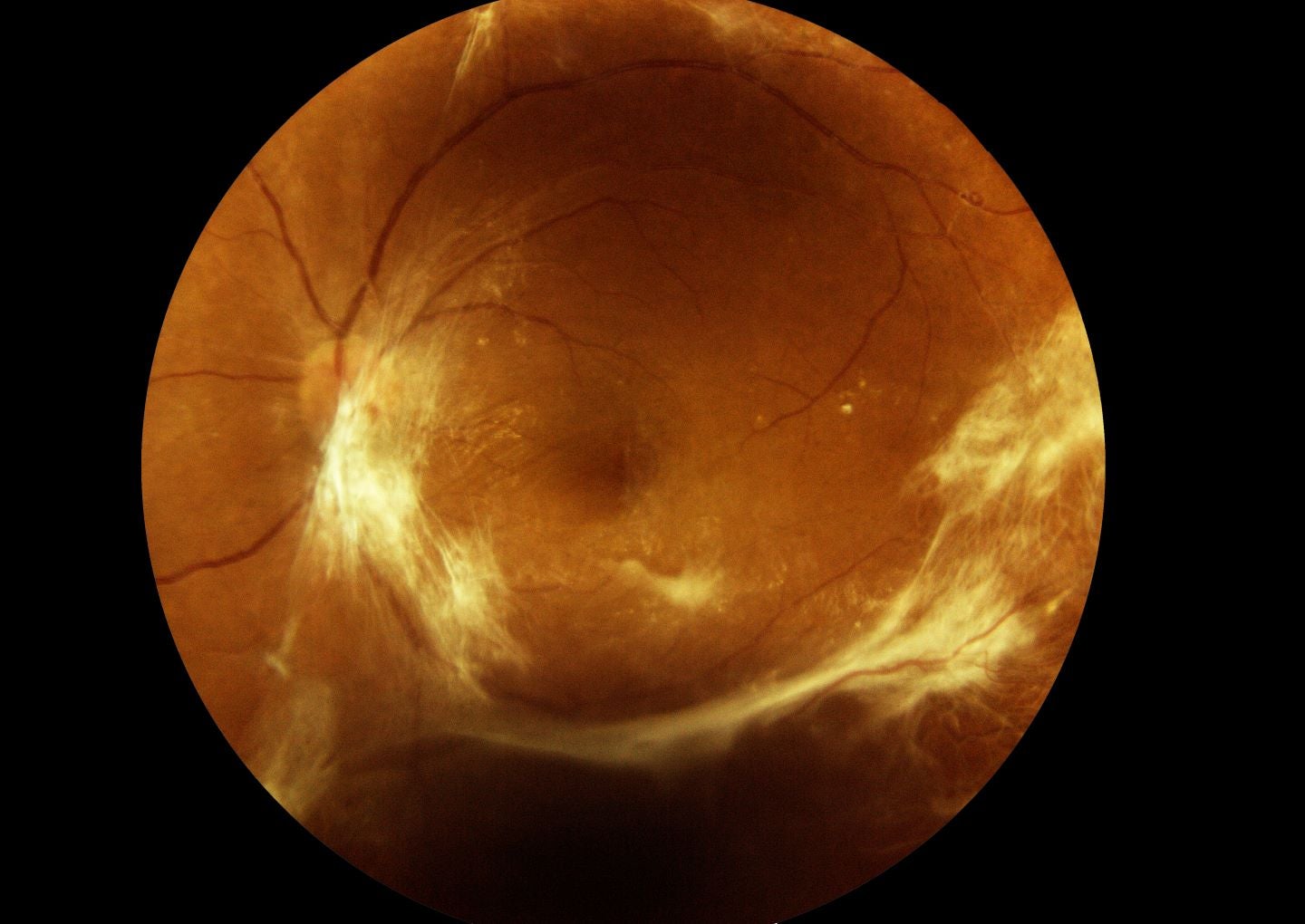At the 127th Annual Meeting of the American Academy of Ophthalmology (AAO) 2023, results were presented from the Phase IIa trial of Allgenesis Biotherapeutics’s AG-73305 (NCT05301751), evaluating its application for the treatment of diabetic macular oedema (DME). DME is a disease driven by anti-vascular endothelial growth factor (VEGF) mechanisms and inflammatory mechanisms. Historically, 50% of DME patients do not respond completely to anti-VEGF therapies, due to other causes of disease, such as inflammatory mechanisms. Therefore, it is of paramount interest that therapies are developed that target other mechanisms of action, such as inflammatory mechanisms, within the DME space.
AG-73305 is a novel bi-specific anti-VEGF and anti-integrin Fc-fusion protein that is being studied for the treatment of DME. Anti-integrins have been found to downregulate both inflammatory and angiogenic processes. Thus, AG-73305 comprises a VEGF-Trap molecule, associated with an integrin. While VEGF-Trap works to inhibit the signalling of VEGF, with comparable potency to aflibercept, and imparts an early onset reduction of vascular leakage, anti-integrin inhibits IL-β, IL-6, and TNF-α, modulating multiple pathways via pan-integrin inhibition, and has a later onset of action, giving rise to a very long-acting effect.
The objective of this Phase IIa study was to determine a dose for AG-73305 and test the therapy’s safety over the course of 24 weeks in naïve and non-naïve DME patients. Patients were administered AG-73305 on Day 0 of the study at a dose of 0.5mg, 1mg, 2mg, or 4mg, to study whether there was a dose-limiting toxicity associated with the therapy. In results reported on Sunday by David Boyer, MD, Clinical Professor, Retina-Vitreous Associates Medical Group, with regards to efficacy, trial results showed that over the course of 24 weeks, there was no dose-related response, and the best visual improvement was seen with the 1mg dose of AG-73305. At this dose, significant durability was recorded in both best-corrected visual acuity (BCVA) and central subfield thickness (CST). Furthermore, the Kaplan-Meier study showed that there was a 60% probability that a single injection of AG-73305 had a treatment duration of 24 weeks.
Regarding the dosing of AG-73305, Boyer noted that “it has been seen with other integrins that we have tested in the past, that the lowest dose…may be the best dose”.
With regards to safety, anterior chamber ocular inflammation was reported in all patients in the 0.5m and 1mg dose groups, in five of eight patients in the 2mg dose group, and in five of eight patients in the 4mg dose group. Nonetheless, most subjects felt this was mild, and many of the patients were asymptomatic. All patients responded to topical steroid treatment within two to four weeks. With regards to other ocular adverse events (AEs), none were reported in the 0.5mg and 1mg dose groups; however, three were reported in the 2mg dose group, of which one patient had non-arteritic anterior ischemic optic neuropathy, another had a vitreous haemorrhage, and another had posterior vitreous detachment, and one was reported in the 4mg dose group, in which one subject had conjunctivitis. Nonetheless, there were no cases of occlusive vasculitis, retinitis, or vitritis. Furthermore, oral and systemic steroid treatment was not required for any of the patients.
Thus, this study proved that with a single injection of AG-73305, improvements in BCVA were maintained for up to six months. This was mainly due to the bi-specific design of AG-73305: while the VEGF inhibitor exerted a short-acting effect, the anti-integrin provided a long-acting effect, extending the durability of the drug. This study also confirmed that AG-73305 was safe and tolerated well by patients.

US Tariffs are shifting - will you react or anticipate?
Don’t let policy changes catch you off guard. Stay proactive with real-time data and expert analysis.
By GlobalDataKey opinion leaders (KOLs) interviewed by GlobalData have expressed interest in the application of anti-interleukins within the DME space, and have stated that there is a need for therapies that target anti-inflammatory pathways in the DME space.
According to GlobalData’s Pharma Intelligence Center, for DME, worldwide, there are 13 Phase III candidates, 30 Phase II candidates, and 17 Phase I candidates.



